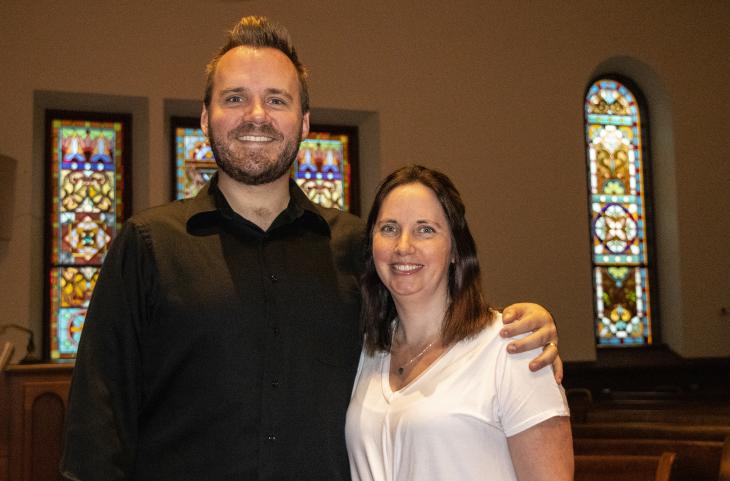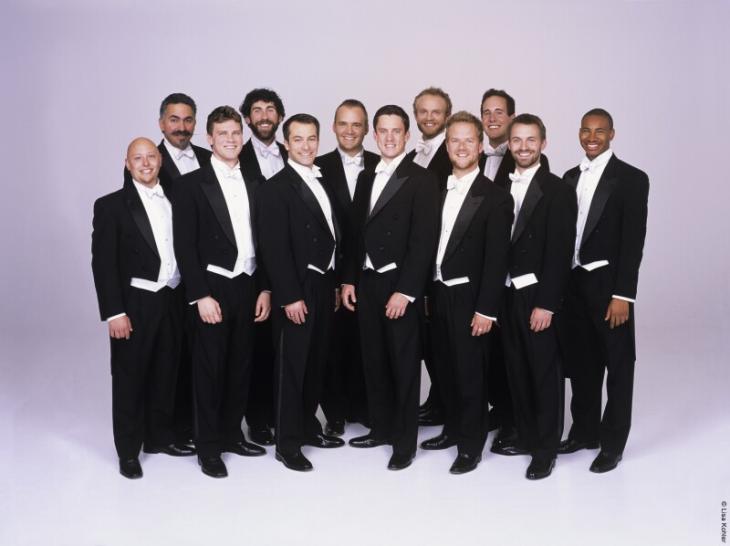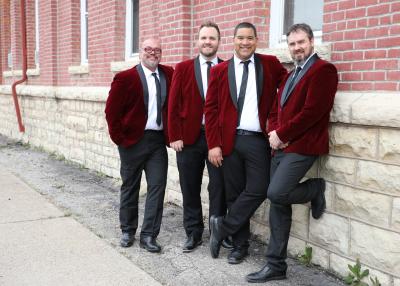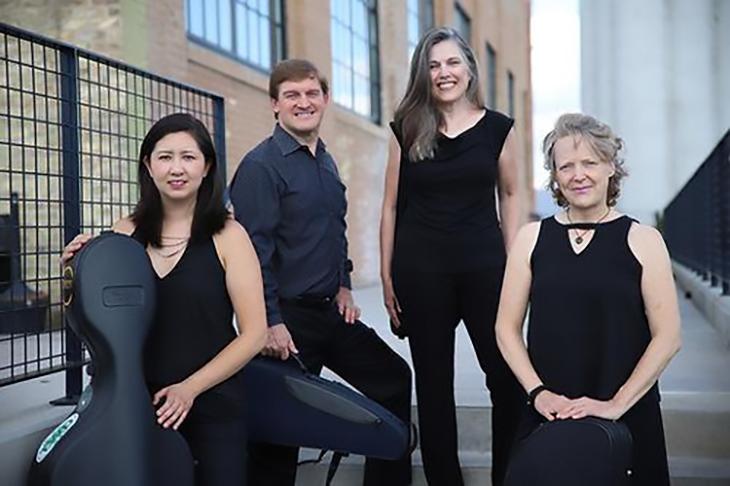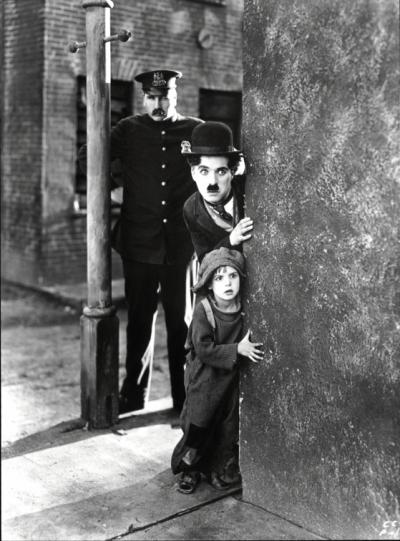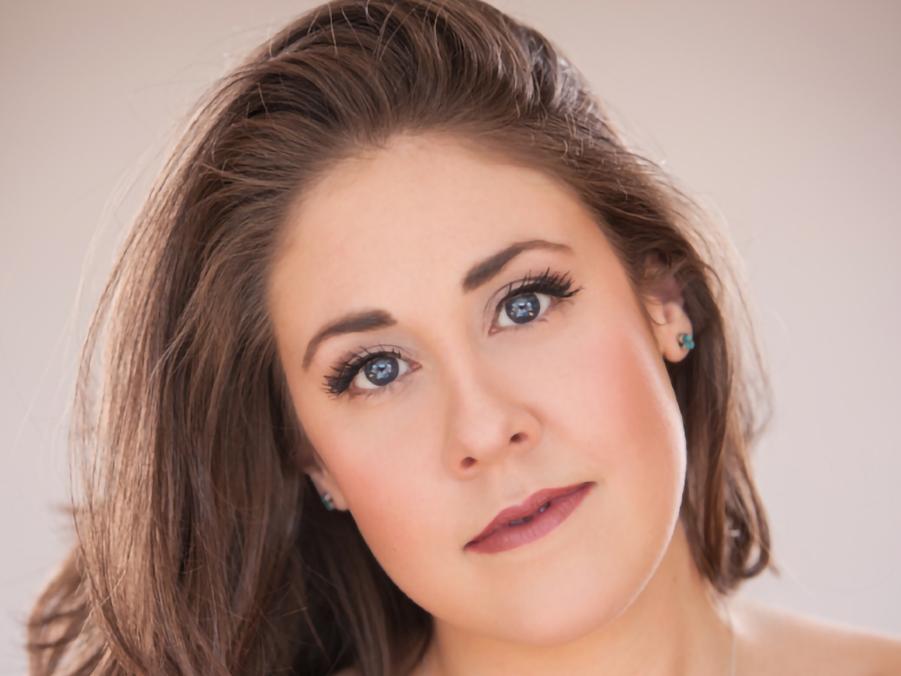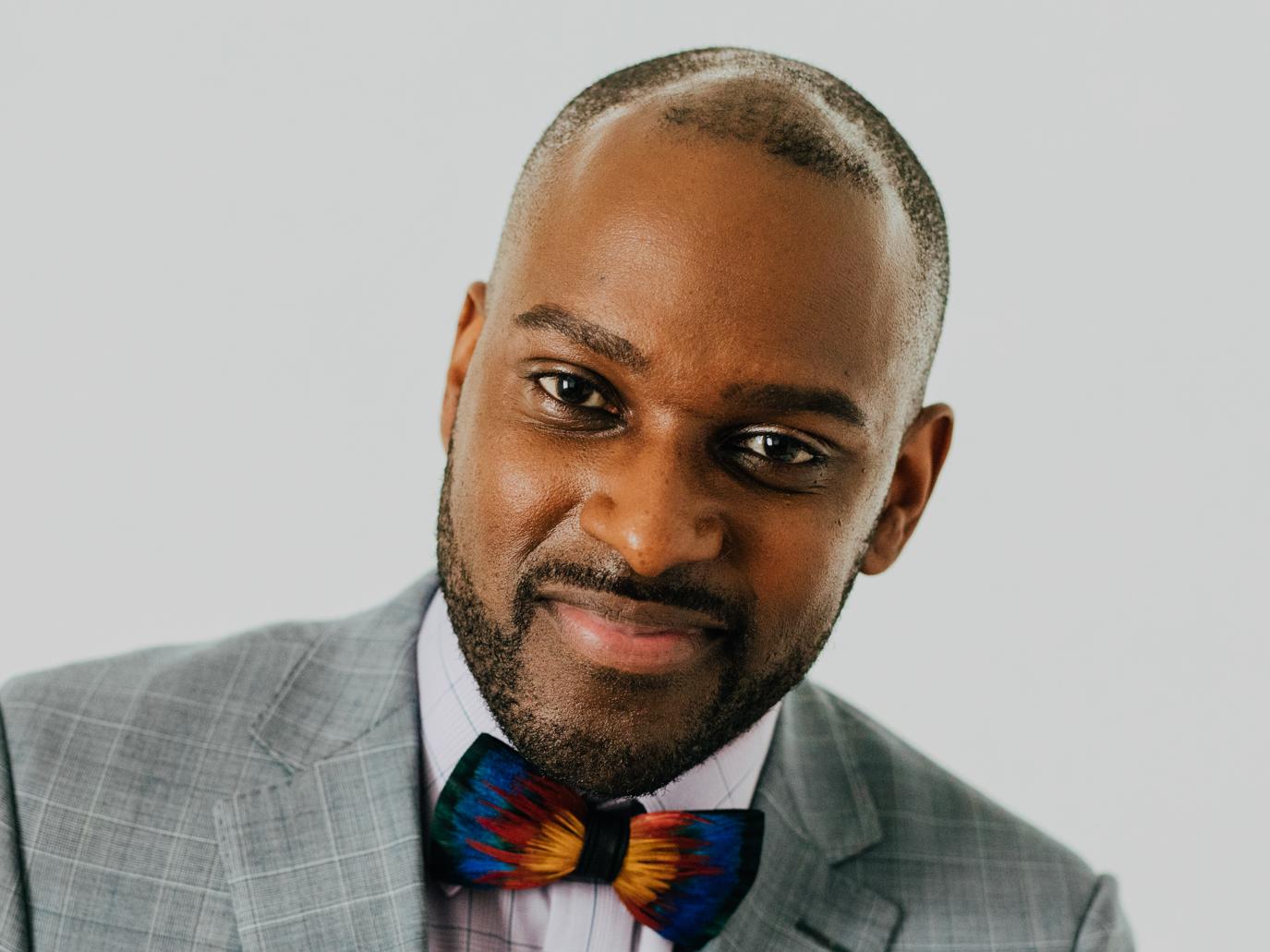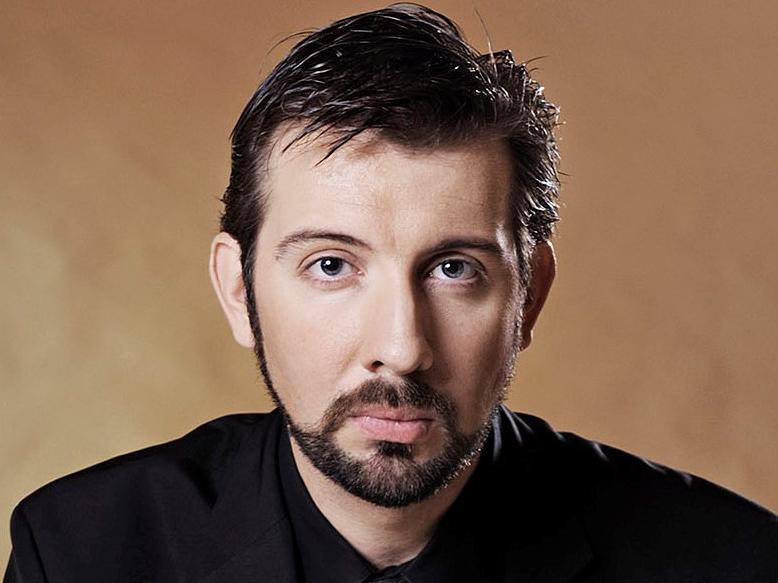Knowing the success Matt Curtis ’08 has had with an innovative business he started from scratch a decade ago and considering an ambitious new project he is launching called the Cappella Performing Arts Center, you might think he’d earned an MBA from Viterbo instead of undergraduate degrees in music performance and music education.
“I’ve always had an entrepreneurial streak,” Curtis said.
As a teen, for example, he bought and sold collectible sports cards on eBay, and in college he had a side hustle buying used textbooks and reselling them.
His musical gifts were clear from a young age. Growing up six blocks from the Viterbo campus, he was always singing around the house, and his talent had developed considerably by the time he was ready for school. His music teacher at Cathedral Elementary School, Lisa Grinde, recognized and fostered his talent as a vocalist, he said. She steered him toward the La Crosse Boychoir, which he joined at age 7.
He loved classical works and in middle school would sing opera arias at the top of his lungs while mowing the grass. After he aged out of the La Crosse Boychoir, he took voice lessons with the choir’s director, Daniel Johnson-Wilmot, who also was on the music faculty at Viterbo. “I was kind of the ultimate choir nerd,” Curtis said with a laugh.
After he graduated from La Crosse’s Aquinas High School, Viterbo was an easy choice for college, since it meant he could continue studying under Johnson-Wilmot. “I’m not the kind of person who believes you have to go to a certain echelon of school to make it,” Curtis said. “In music, it’s about finding the right teacher.”
Curtis was presented with another easy choice after graduating from Viterbo. He was one year into graduate school studies at the University of Minnesota when he was offered a chance to sing with Chanticleer, a renowned men’s choral group based in San Francisco.
“It was always a dream and aspiration of mine to perform with Chanticleer,” Curtis said. “It’s at the pinnacle of choral music. It was an opportunity I couldn’t pass up.”
Go West, Young Man
Curtis and his wife, Robynn, who also graduated from Viterbo in 2008 with a music education degree, moved to San Francisco, beginning an eight-year stint in California, during which Curtis sang with several other major league choral groups in addition to touring the world and recording with Chanticleer for three performance seasons.
As much as he loved performing, Curtis said he knew that singing classical choral works would never be a lucrative endeavor, and it might not be the best fit for someone who wanted to have a family life. After a few years in California, Curtis decided to start a business that would use his musical skills while helping others user theirs.
The business traces back to his days at Viterbo, when he was singing with a barbershop quartet. There are few music readers among those who sing barbershop, which can make learning intricate harmony parts difficult. To make it easier, he discovered when he was a junior at Viterbo, a company was doing a brisk business offering recordings of barbershop harmony arrangements of songs with which vocalists could sing along to learn and perfect their parts.
That triggered Curtis’s entrepreneurial instinct, and the summer before his senior year he created the same kind of recordings for Gregorian chants—between 600 and 700 of them—instead of getting a regular summer job. Ingeniously, he marketed the recordings through online chat rooms for fans and practitioners of Gregorian chants and made several thousand dollars for his efforts.
Five years later, Curtis had a light bulb moment: He could do for traditional choral music what he had done for Gregorian chants, and he’d call the business Choral Tracks.
Hitting a High Note
With his wife recording keyboard accompaniment, Curtis would sing all the parts of a choral work, then create different mixes of the recording that would help singers learn their parts by ear and rehearse as if they were singing with a full choral ensemble.
“The biggest challenge was always the huge volume of choral works. There’s just so much music out there,” he said. “How do you build up enough inventory to satisfy the demands?”
The answer? A lot of hard work and long days. “I’ve always had a crazy work ethic,” Curtis said. “Even to this day, 90-hour work weeks are common and days off are rare.”
He was careful to balance his marketing efforts with his ability to create recordings so he wouldn’t get completely overwhelmed with orders. Choral Tracks grew steadily, and in 2017 Curtis decided to go all in on his business, setting aside his performing career and moving back to La Crosse.
He didn’t hire his first employee until 2019, but today he has 14 employees, half of them singers, and Choral Tracks has built up a catalog of 33,000 titles. Several of the Choral Tracks staff members are fellow Viterbo graduates, including Alexandra Burch ’21, Gavin Mason ’21, and Raymond Graybar ’14. Also on staff are Alethia Kenworthy, who got her education licensure through Viterbo, and former faculty member David Richardson.
The pandemic gave the business a big boost. The products offered by Choral Tracks were perfect for times when school and church choirs were unable to rehearse together in person. During the first year of the pandemic orders doubled, and growth in the business remained strong even as pandemic restrictions eased.
Curtis still spends the majority of his Choral Tracks work hours singing, but now with a growing staff, he doesn’t have to sing all the parts. He still manages the marketing and customer service for the company, too.
In his “spare time” over the past couple years Curtis has gotten involved in investing, first dabbling in stock trading and then, after success in that realm, investing in local real estate. In a little over a year, he’s bought 10 properties, and he’s working on transforming one of them into a cornerstone in the cultural life of the community.
He’s calling it the Cappella Performing Arts Center.
Musical Moonshot
“I have discovered that every seven to 10 years I need a new challenge,” Curtis said. How about buying a sprawling, historic church building and transforming it into a venue that will make concerts (classical, jazz, ethnic, and more) into “an experience” that goes beyond passive listening and get younger generations to have a deeper appreciation for a broader array of music?
Yeah, that’s challenge enough for most people, but Curtis also plans some major historic restoration in the former home of Wesley United Methodist Church that will create strikingly elegant spaces for weddings, receptions, and other kinds of festive gatherings.
The first Cappella Center concert in a wide-ranging season of performances is Sept. 16, with the Artaria String Quartet giving its first of four concerts planned for the debut season. After the Artaria concert concludes, there will be an afterglow party with a jazz band, drinks, and snacks in a lounge area adjacent to the performance space. That lounge will see a lot of use for intermissions and post-concert festivities for other events as well.
Other musical highlights for the season include a performance by Chanticleer, a Sinatra tribute from Dan Ferris and the Chicago Jazz Quartet, a recital by Viterbo alum and international opera performer Katherine Weber ’10, and concerts featuring the La Crosse Jazz Orchestra, the La Crosse Boychoir, genre-bending pop/classical/roots trio Take3, and Mariachi Sol de Mexico de José Hernandez.
But wait, there’s more.
The Cappella Center will offer a series of silent film screenings with live pipe organ accompaniment played by a “heavy hitter” from Boston, starting with a Halloween showing of The Phantom of the Opera. Film screenings will also include Charlie Chaplin’s The Kid and 1927’s Wings, winner of the first Academy Award for best picture.
Expect numerous other musical events apart from the main Cappella Center performance season, including a Viterbo performance of Amahl and the Night Visitors, recitals, and possibly concerts by other community and college ensembles.
The Cappella Center also will host rehearsal sessions for many area music groups, including the new Viterbo Choral Arts group, the Boychoir and Girlchoir, the Coulee Chordsmen, and the La Crosse Youth Symphony Orchestras.
Curtis serves on the boards of the La Crosse Boychoir (as president), the La Crosse Chamber Chorale (as vice president), the United Fund for the Arts and Humanities, and (soon) the La Crosse Symphony Orchestra. He knows how tight budgets are for community music groups, and the Cappella Center takes that into account in its rental fees.
“If it has to do with nonprofits or children making music, we’re not charging them for anything,” Curtis said.
During his time in San Francisco, Curtis saw forward-thinking innovations in how classical music is presented, and the Cappella Center will be run in that innovative spirit.
“Concerts aren’t going to be concerts. They’re going to be experiences,” Curtis said. “We’re going to do everything we can to reinvent a classical music concert-going experience to expand the appeal to younger audiences. If we don’t, what’s it going to look like in 15 or 20 years. Changes need to happen or it’s not going to survive.”

